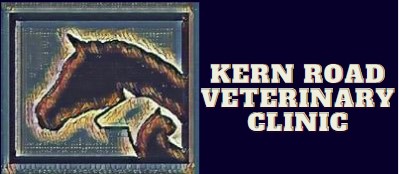Library
-
Online shopping is convenient, but it’s important to be cautious about what you purchase online, especially when it comes to your pet's medications. Follow recommendations from your veterinary clinic and avoid any company that does not require a prescription from your veterinarian.
-
A cesarean section is a surgery to remove kittens from the uterus and is most commonly performed as an emergency procedure when there is difficulty with natural birth. During the immediate recovery period, the mother and kittens must be closely monitored and begin eating/nursing within a few hours. If you have any concerns about their health, you should immediately have your veterinarian examine the kittens and their mother.
-
Cheyletiellosis in rabbits is a condition caused by the common rabbit mite, Cheyletiella parasitovorax. This mite’s effects are sometimes called "walking dandruff" because they are large, whitish mites that crawl across the skin and hair of a rabbit and cause excessive flaky skin. Other clinical signs of cheyletiellosis include itching, scratching, and hair/fur loss. This species of mites can live in the environment for a short time and affect people and other animals, so it is important to follow your veterinarian's recommendations for treating the environment and all pets in the household.
-
Diets for backyard chickens are developed to provide the proper nutrition for the chicken’s life stage. Protein and calcium contents are different for baby chicks, growing chicks, adult laying hens, and roosters. Supplements and treats may be given in small quantities.
-
Chin acne in cats is a poorly understood disorder of follicular keratinization (the overproduction of keratin, a protein found in the outer layer of skin). If this excess keratin is trapped in the hair follicle, comedones (blackheads) form. Pustules (pimples) may form if bacteria infect the comedones. The underlying causes are not fully understood but may be associated with excess sebum production, viral infection, immunosuppression, stress, or poor grooming. Treatment options are available and often involve improved hygiene.
-
This handout provides basic guidelines for feeding a pet chinchilla a healthy and balanced diet tailored to the specific needs of chinchillas.
-
Chinchillas can make fun, enjoyable pets. They can live 15-20 years, so the family must plan for a long-term commitment. They require a cage with a wheel to run in to help them maintain their health and strength. Yearly veterinary examinations are highly advised as they are very good at hiding symptoms of illness.
-
Chinchillas are generally hardy animals but can have several unique problems; understanding them will help you care for your pet and manage potential health problems.
-
Your chinchilla's cage should allow them to move around a lot, as they are very active, agile, and acrobatic animals. This handout discusses best practices for maintaining a healthy chinchilla living environment.
-
Chocolate is toxic to dogs. While rarely fatal, chocolate ingestion often results in significant illness. Chocolate is toxic because it contains the alkaloid theobromine. Theobromine is like caffeine and is used medicinally as a diuretic, heart stimulant, blood vessel dilator, and muscle relaxant.

